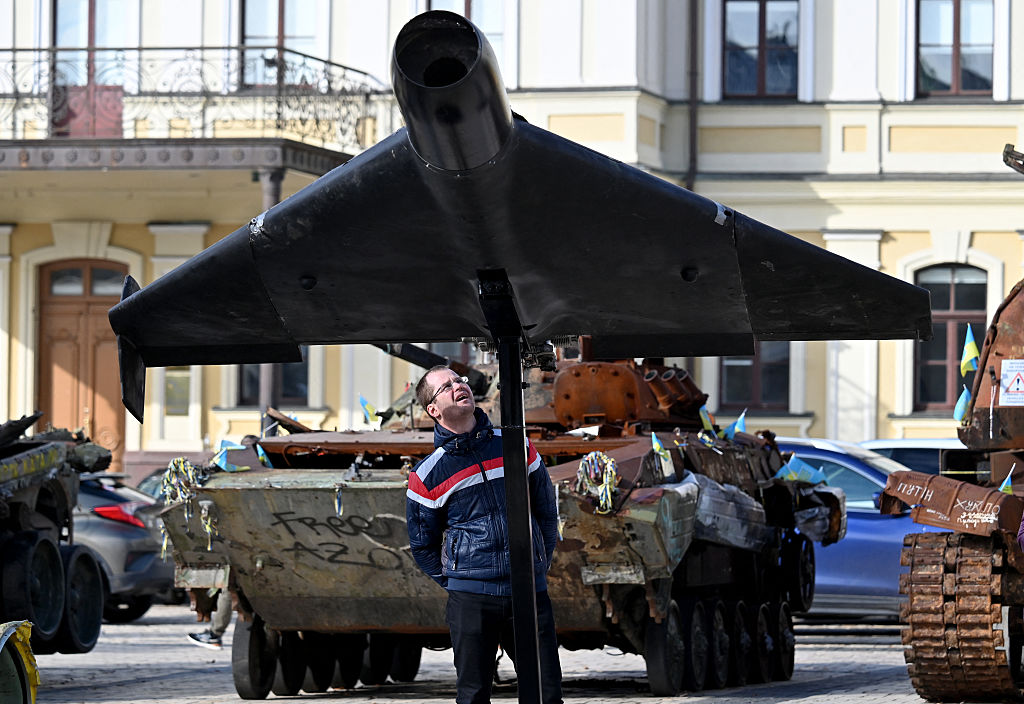South African authorities have launched an investigation to determine how locally made technology turned up in kamikaze drones deployed by Russia in its invasion of Ukraine.
Ukrainian troops discovered the laser range-finding equipment produced by South Africa’s LightWare Optoelectronics after they recovered a downed Garpiya-A1 kamikaze drone. Ukrainian authorities said the technology could be used to gauge distance to a target and trigger drones to detonate.
Russia has used Garpiya-A1 drones to target Ukraine’s infrastructure. The drones are a hodgepodge of internationally sourced technology, with engines from China and parts from other countries. The fixed-wing drone is modeled on the flying wing Shahed devices Iran has provided Russia in recent years.
Normally, the South African technology found in the Russian drone is used in driverless cars, mining equipment and wildlife protection. In recent years, LightWare has shrunk the size of the technology, making it easier to add to a drone.
LightWare has said it did not permit its civilian-use technology to be used for any military application. LightWare told Bloomberg that it stopped selling technology to Russia and Ukraine in 2022, but that it cannot track the technology that may have been sold before that.
“It appears an unscrupulous operator, without our knowledge, purchased our sensors elsewhere and used them unlawfully in Russia,” LightWare CEO Nadia Nilsen said in an email to Bloomberg.
“We do not sell or design products for military use,” LightWare said after the discovery.
South Africa remains neutral regarding the Russian invasion of Ukraine. The presence of South African technology in Russian drones threatens that position, according to Chris Hattingh, spokesperson for Defence and Military Veterans in South Africa’s Democratic Alliance political party.
Despite its neutrality, South Africa has conducted military exercises with Russia and has refused to vote on United Nations resolutions condemning the invasion. Russia has recruited dozens of South African men to serve as mercenaries on the front lines in the Donbass region of Ukraine. At the same time, South African women have reported being employed in Russian drone factories after being recruited through social media posts to work in hospitality.
South Africa bans companies from exporting weapons to countries engaged in active conflict without the permission of the government’s National Conventional Arms Control Committee. LightWare does not fall under the auspices of the committee.
Sipho Mashaba, acting director for conventional arms control at the committee, confirmed that LightWare is not licensed to sell its technology directly to weapons makers. It does not qualify as a dual-use technology that can be repurposed for either civilian or military uses.
Dual-use devices are restricted under the international Wassenaar Agreement, which aims to keep such technology out of the hands of terrorists. As a Wassenaar Arrangement participant, South Africa is required to control dual-use goods, including optics and sensors.
“This matter will be referred to the inspectors who will visit the premises of the entity to establish the scope of their business as well as the application,” Mashaba said.

